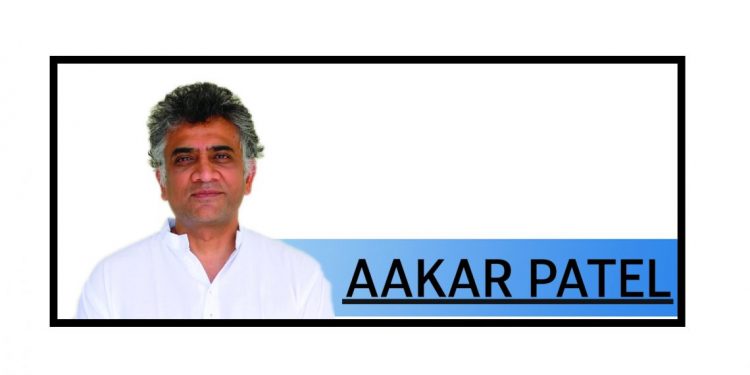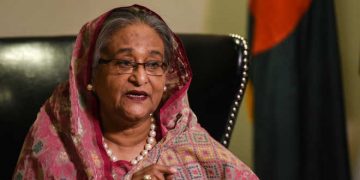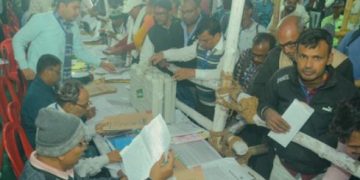It has been 14 years since Pakistan’s fourth dictator Pervez Musharraf left office. Pakistan goes to general elections next year and though once again its army is in the news (for reasons we don’t need to go into here today) it appears Pakistan is now out of the cycles of periodic military rule.
To know why, let’s take a look at Pakistan’s history, which can be parcelled quite nearly into 10-year periods. The first decade was one of confusion. Jinnah delivered a nation and passed away just after Gandhi but for his heirs drafting the constitution was hard. The Muslim League papered over its differences by rotating prime ministers from the various communities. These included two Bengalis (Suhrawardy and Bogra), a Gujarati (Chundrigar) and two Punjabis (Noon and Muhammad Ali). Real power for much of this period was held by a Pashtun, Malik Ghulam Muhammad. He was a bureaucrat who left office to begin a business importing jeeps, founding a company called Muhammad and Mahindra (later renamed Mahindra and Mahindra), before exiting the business to serve Pakistan. In his autobiography, Friends Not Masters, General Ayub Khan says it was Muhammad who nudged him to take over. Khan was the defence minister cum army chief about to retire at 48 when a paralytic and dying Muhammad told him to ‘save’ the country from the politicians, which Ayub duly did.
The second decade of Pakistan was called the ‘decade of development’. Ayub Khan so impressed the world with his apparent brilliance that Samuel Huntington (of ‘clash of civilisations’ fame) likened him to the Athenian lawgiver Solon. This was the period in which Pakistan’s growth rate leaped ahead of India’s, and in which Nehru and Ayub wisely signed the one treaty that has helped keep the peace, dividing the Indus waters. Pakistan seemed to have found a model for itself, which combined laissez faire economics with something called ‘basic democracy’.
Of course Ayub, like all dictators was flawed. In a moment of madness he acquiesced to a plan by his 35-year-old foreign minister, ZA Bhutto, to send soldiers in civilian dress across the Line of Control to ‘liberate’ Kashmir. Shastri responded by sending the army across the international border near Lahore and the Soviets intervened to produce a ceasefire. The wily Bhutto resigned and went public, claiming betrayal. The 1965 war fatally weakened Ayub and he was pushed out by his fellow generals of whom one, Yahya took over, ending the decade of development.
The third decade began with the rise of Bhutto and ended with his hanging in 1979. It saw the first proper elections in Pakistan, which offended the Punjabis. The Bengalis under Mujibur Rahman won a majority, not just in the East, which it swept but in the overall assembly as well. Rule by Bengalis was unacceptable to West Pakistan. Another war followed which resulted in the partition of Pakistan and the coming to power of Bhutto, whose Pakistan Peoples Party had won a narrow majority in the west.
Like all of our subcontinent’s charismatic and messianic rulers, Bhutto turned out to be a disaster. He took on military airs, wearing a liveried costume with braided epaulettes and hugging world leaders. He pushed a socialism which nationalised even small businesses like flour mills and chased much of the Gujarati talent out of Karachi, damaging Pakistan’s economy. He thought he had tamed the army and refused to accept the 90,000 prisoners from West Pakistan in Bangladesh. These men spent a few years in North Indian internment camps before being returned a few years later. Bhutto sidelined or fired all the generals from that time and appointed a Jalandhari from the non-martial Arain caste of peasants as army chief. He made fun of this man, Zia ul Haq, and referred to him his monkey. Zia was cunning and played along, allowing Bhutto to get into trouble as he inevitably would. Bhutto rigged the next election and the violence from the opposition compelled the Pakistan army to once again ‘step in’ which Zia did.
The fourth decade under Zia was Pakistan’s worst. The year Bhutto was hanged, 1979, was momentous. The Soviets invaded Afghanistan, the Shia clergy captured Iran under Khomeini and fanatics laid siege to Mecca, frightening the Saudis. Radicalism spread across the Muslim world and the Pakistan army profited, though Pakistan suffered heavily. It was Zia’s soldiers who helped the Saudis clear Mecca and of course it was the Pakistani ISI which armed and trained the Pushtun, Tajik and Uzbek militias that undid the Soviets.
Zia died in an unexplained plane crash along with the US ambassador in 1988. Bhutto’s daughter Benazir returned to Pakistan for the elections and it seemed that at long last real democracy would return to the people. Unfortunately, this was the same period in which India mishandled Kashmir and gave the Pakistanis the opening, beginning something the experts call a low-intensity conflict, but which claimed at its peak 4,507 lives in 2001. Benazir was too weak to resist the ISI’s capture of foreign policy and its mischief against India, but even though she played along, she was booted out by the army twice, rotating the leadership with the army’s favourite Nawaz Sharif, a 34-year-old steel manufacturer.
This fifth decade was democratic only in name with real power still resting with the army chief and, more worryingly, with the ISI chief. Readers may remember that this was the period during which India was constantly asking Pakistan for talks and Pakistan was refusing to engage, the reverse of which is true today.
The sixth decade was that of General Musharraf, the fourth dictator who profited greatly from the ‘war on terror’ which returned Pakistan to primacy because of its location. The Ayub model of laissez faire economics and ‘guided’ democracy also returned, boosting Pakistan’s growth rates to around 5%, where they remain today, despite all the troubles. Musharraf’s exit produced the seventh decade which ended with the first three consecutive general elections without overt army interference. The army is still up to mischief, of course, but it is less adventurous.
It seems, at last, that in its eighth decade, Pakistan has settled into being a parliamentary democracy just like Bangladesh also has and like we have always been.






































